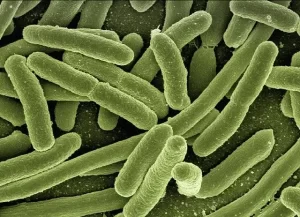First fungal biome atlas reveals link to cancer
- Did Cloud Seeding Unleash a Deluge in Dubai?
- Scientists Identify Gut Bacteria and Metabolites that Lower Diabetes Risk
- OpenAI’s Model Matches Doctors in Assessing Eye Conditions
- UK: A Smoke-Free Generation by Banning Sales to Those Born After 2009
- Deadly Mutation: A New Monkeypox Variant Emerges in the DRC
- EPA Announces First-Ever Regulation for “Forever Chemicals” in Drinking Water
First fungal biome atlas reveals link to cancer
- Red Yeast Rice Scare Grips Japan: Over 114 Hospitalized and 5 Deaths
- Long COVID Brain Fog: Blood-Brain Barrier Damage and Persistent Inflammation
- FDA has mandated a top-level black box warning for all marketed CAR-T therapies
- Can people with high blood pressure eat peanuts?
- What is the difference between dopamine and dobutamine?
- How long can the patient live after heart stent surgery?
First fungal biome atlas reveals link to cancer.
According to a paper published in the journal Cell on the 29th, an international team of scientists conducted a study of 35 cancers and their associated fungi, creating the first pan-cancer fungal biota map.
Cancer cells and microbes have a long and lasting connection: the two have co-evolved within the human ecosystem, often relying on the same resources.
Competition for these resources often affects the replication and survival of cancer cells, microbes, and human cells.
The role and impact of cancer-associated fungi remain largely unstudied and understood.

There are two main types of fungi found on humans: environmental fungi and symbiotic fungi. Fungi play a role in shaping host immunity, for better or worse, and this is evident in immunocompromised people, including cancer patients.
The new study describes the cancer fungal biota, the fungi associated with cancer, in tissue, blood and plasma samples from 17,401 patients with 35 types of cancer.
The researchers found that the abundance of fungal DNA and cells is low in many major human cancers, and that the composition of the community varies across cancer types.
Analyses comparing fungal communities with matched bacterial bodies (the bacterial components of the microbiome) and immunosomes (the genes and proteins that make up the immune system) show that their relationships are often ‘inclusive’ rather than competitive .
For example, the researchers found that one fungus was enriched in breast cancer tumors from patients over the age of 50, while another was abundant in lung cancer samples.

Specific fungi were significantly associated with age, tumor subtype, smoking status, response to immunotherapy and survival measures, the researchers said. Whether these fungi are simply related or causally related remains to be determined.
The findings confirm the idea that the entire microbiome is a critical part of cancer biology, which could lead to significant translational opportunities, not only in cancer detection, but also in drug development, cancer evolution, minimal residue, the researchers say.
It may also provide important translational opportunities in the application of the technology in areas such as , relapse and companion diagnostics.
First fungal biome atlas reveals link to cancer
(source:internet, reference only)
Disclaimer of medicaltrend.org
Important Note: The information provided is for informational purposes only and should not be considered as medical advice.



